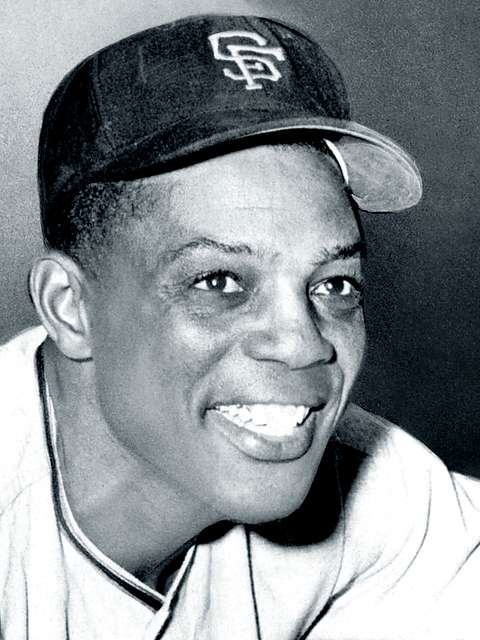JAIME C. HARRIS AmNews Sports Editor
The venerated Willie Mays, iconically nicknamed “The Say Hey Kid,” widely viewed as the best baseball player in the long and storied history of the sport, has transitioned to rest in power with the ancestors.
Mays passed away at the age of 93 on June 18 “peacefully and among loved ones,” as shared by his son Michael Mays through the San Francisco Giants, for which the elder Mays played most of his career.
“The majors? I didn’t dream about the impossible. I was taught to see your goal in your mind and work toward it. I could work toward getting to Rickwood Field and the Birmingham Black Barons. I didn’t need to dream for that. For that, I needed to work hard. So, I did,” he told reporters.
“Things changed in ‘47 with Jackie (Robinson) coming in. Well, then I started to dream big,” said Mays.
World Series
The most apt word to characterize Mays as a player is breathtaking. At 5’10,” his combination of speed, power, skills, innate sense of angles, distance and trajectory of the ball, and flair for the dramatic were unparalleled. His statistics are mesmerizing: A 24-time All-Star. Two-time NL MVP. Twelve Gold Gloves. Four Time NL home run leader. Four-time NL stolen base king. The 1954 NL batting champion, the same season he won his only World Series.
Playing for the New York Giants in the Polo Grounds in Harlem prior to the franchise moving to Seals Stadium in San Francisco in 1958 before settling into windy and cavernous Candlestick Park in San Francisco beginning in the 1960 season, Mays, along with the Yankees’ Mickey Mantle and the then Brooklyn Dodgers’ Duke Snyder, formed the most famous trio of center fielders to compete in the same city, in the same era, in the annals of baseball.
Stickball
Many Harlemites growing up and living in America’s most prominent Black community in the 1960s recall seeing Mays playing stickball with youth or frequenting local establishments, as humble and unassuming as one of the nation’s most recognizable people could be.
He was a central figure in defining the Black experience of overcoming the oppressive demonization of African descendants in the Jim Crow South and the rejection of systemic racism by embodying and reflecting Black excellence as he grew into manhood.
If Sirius is the brightest star in the Earth’s night sky, Willie Mays is its human equivalent.
Read the full story at New York Amsterdam News.




